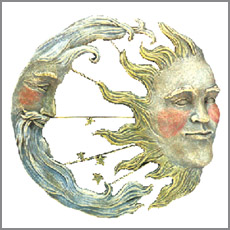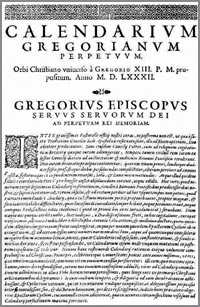
A new year...a new calendar
The year that has
just dawned is 2008 AD. What does AD mean? AD stands for
Anno Domini - two Latin words
which mean "in the year of the Lord." It is the 2008th year since the
birth of Jesus Christ.
|

A depiction of the two equinoxes |
The calendar now in use worldwide is called the
Gregorian Calender. This
calendar - the arrangement of months in the year and days in the month -
was introduced by Pope Gregory XIII in the 16th century. The calendar
introduced by Julius Caesar was corrected by Pope Gregory XIII in 1582
and that is the calendar now in use worldwide.
In the Gregorian calendar, the year starts on January and ends 365
days later or 366 days later, if it is a leap year, on December 31.
Are you aware that within this Gregorian year, there are other years
which begin on different days, much later than January 1? Those new year
days are celebrated by various people who followed that calendar before
they adopted the Gregorian Calendar.
All of you know that the Sinhala and Tamil New Year begins on April
14 of the Gregorian Calendar. The first month of the year is Buk in
Sinhala and Siththirai in Tamil.
In the Buddhist countries of South Asia, viz, Myanmar, Thailand,
Cambodia and Laos, the traditional new year begins on this day - April
14. The Buddhists in Bangladesh too celebrate the new year at the same
time.
In mid-February, the Chinese wherever they are, will be celebrating
their new year. The two equinoxes,
March 21 and September 22/23, were reckoned as the beginning of a new
year by various peoples of the ancient world. The spring equinox - March
21 - is the beginning of a new year for the people of Iran. The autumnal
equinox in September is the first day in the Hebrew calendar. The jews
celebrate their new year in September.
This year is the 2008th year of the Christian era. An era is a period
in history, starting from a particular time or event. The Christian era
begins with the birth of Christ. In some accounts in history books, you
might see dates with the abbreviation BC. It stands for 'Before Christ,'
that is before the Christian era began. The Buddha passed away in 544
BC, and Mahinda Thera came to Lanka in 234 BC.
The Buddhist Era (BE) is calculated from the parinirvana or the
passing away of the Buddha. So, this is the 2551st year of the Buddhist
era. Some Sinhala newspapers like Silumina, the sister paper of the
Sunday Observer, gives the Buddha Varsha, the year of the Buddhist era,
in the dateline on the front page.
You may have heard the phrase Saka Varsha:
Saka, also called Sali Vaahana was a king who ruled in north west
India - now Pakistan. The Saka Varsha or Saka
|

The Gregorian Calendar |
era began in 78 AD. So this is year 1929 of the Saka era. You
will find the Saka Varsha given in the almanac (litha) alongside the
year of the Christian era.
Hijiri is the Muslim era. It is counted from the year that Prophet
Mohammed migrated with his followers from Mecca to Medina. This is the
1428th year of the Hijiri era.
There is also another era called the Kali Yuga - Yuga is an age. This
is the 5108th year of the Kali Yuga. It is the last of the four ages of
the world. It is an age of vice, misery and bad luck. It is said that at
the end of the Kali Yuga, the world will be destroyed.
When the new millennium of the Christian era commenced (year 2001),
the Hebrew year was 5761, whereas it is only 5108 years since the Kali
Yuga began.
Besides these years counted from natural phenomena (happenings) like
the equinox, when the Sun is overhead the equator, or according to
astrology, the Sun completing one cycle of the zodiac begins another
year (our own new year), there are other years within the Gregorian
year.
There is the academic year, or the school year. In Sri Lanka, the
academic year in universities and schools starts in January, but in
countries with marked seasons, like England, France and America and
Australia and New Zealand (in the Southern hemisphere), the school year
starts in autumn after the long summer vacation.
In America, they say the schools start in the Fall - meaning Autumn
when the leaves begin to fall. In the northern hemisphere, the academic
or school year begins in late September or October, in the Southern
hemisphere, where it is summer now, the school year or academic year
starts in March.
Then, there is the Income Tax Year
called Fiscal Year in the US. Ask your parents whether they pay income
tax. I am sure they do. This is the tax that has to be paid on all
income (earnings) over a specified amount, during a period of 12 months.
Now this period is from April 1 to March 31 of the next year - not
from January 1 to December 31. I do not know why the income tax year is
counted from April to March. When I find out the reason, I shall let you
know.
Sumana Saparamadu |
